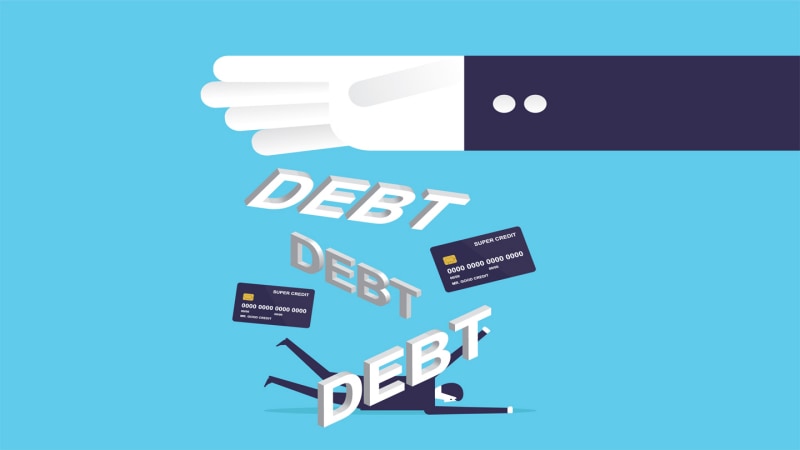Should you save money or use it to pay off debt

Highlights
- Depending on your financial situation, it may be more helpful to pay off your debts first before saving money.
- Paying off credit card debt can help improve your score.
- There are several methods — like the snowball method or avalanche method — to help pay off debts.
When it comes to figuring out if you should save or pay off debt, it can feel like a chicken-or-the-egg scenario — which of them comes first?
Of course, it depends on your goals and financial situation. If you’re looking to improve your credit, you may want to prioritize paying off debts while making small steps towards savings.
In this article, we will explore:
- When you may want to consider paying off debt first before saving
- Potential benefits of paying debt off first
- Potential drawbacks of paying off debt first
- When you may want to consider saving money before paying off debt
- Potential benefits of saving before paying off debt
- Potential drawbacks of saving extra money first
- Methods of paying off debt
Should you consider paying off debt first before saving?
To help you figure out when to pay off your debt before you start saving, start by looking at what kind of debt you have, as your approach could depend on the debt itself. Consider asking yourself the following questions:
- Is it credit card debt you’re looking to pay off?
- Does the debt have a high interest rate?
- Are you feeling stressed about how much debt you have left to pay off?
- Is your income mostly going towards these debts, making it harder to be flexible and save?
If you’ve answered “yes” to any of these questions, consider paying off your debt sooner than later. You may be able to leverage paying off your debt as a way to avoid continued interest fees, saving you money in the long run. There are some approaches to do this, including the debt snowball method and avalanche method (more on this later).
Paying off significant debt generally trumps savings. You can always build up your savings once you are out of debt. First, try to address your debts, get them to a manageable place and then determine if you can adjust your budget to start building up your savings. Practicing healthy financial habits along the way can help you pay off your debt and get a savings account started once you’re ready.
If your goal is to help improve your credit score, you can enroll in Chase Credit Journey®, a free online tool that can help you do so and that anyone can use. You can use the score improvement feature to receive a personalized action plan powered by Experian™ to help you take steps towards improving your credit score over time.
Potential benefits of paying debt off first
Debt can be crippling. When saddled with debt, it can be difficult to get approvals for loans, credit cards, and it may even impact your credit score if you’re struggling to pay it off. You may want to find a way to reduce debt. Having savings means little if your credit cards are being canceled or a collections agency is knocking on your door.
Additionally, you could avoid paying more in interest if you pay off your debt sooner, especially if the interest rates are high. And, if you're paying off credit card debt, paying off your balance can help lower your credit utilization ratio, which can help improve your credit score. A higher credit score bodes well for lower annual percentage rates (APRs), loans approvals and higher credit limits for you in the future.
Potential drawbacks of paying off debt first
If you’re putting your money towards paying off debt first, it could make it more difficult for you to build up any significant savings. You may have to put off making large purchases or adjust your timeline for how much you want to save by a certain date. Additionally, you may need to adjust your budget and cut expenditures to help pay off debt. Doing so could create a lifestyle change, where you may need to sacrifice some of your day-to-day spending in order to pay off your debt first.
When you may want to consider saving money before paying off debt
If you are a cautious person who likes to be prepared for unforeseen situations and you don’t have any (or extremely little) savings, you may want to start first with supplementing a savings account before paying off your debt. This way you may be able to manage potential emergency situations such as medical bills.
Potential benefits of saving before paying off debt
Now, if you don’t have any savings, establishing a modest emergency fund can be a priority that may be even more important than tackling debt in any meaningful way. Doing so can help avoid potential stressors if you need money quickly for sudden expenses (such as medical bills). Having an emergency fund is often essential for being able to handle life’s obstacles.
Savings can be built slowly over time to help you have a foundation for both emergencies and larger purchases. If you’re putting all your money towards paying down debts without saving, you might find yourself in a situation where you’re desperate for cash but don't have the necessary resources to tap into.
Potential drawbacks of saving extra money first
Saving money is a healthy financial behavior that everyone should try to practice and build up over time. However, if your debt continues to accumulate interest fees, saving instead of paying off debt could make the process of paying off your debt a longer, more laborious (and potentially more costly) venture.
Methods of paying off debt
There are several approaches to paying off debt — from debt management plans to budgeting to working with a financial advisor. There are, however, two main methods you can use to help pay off your debt. These include the snowball and avalanche methods.
- The snowball method entails paying even more than your monthly minimum payment towards your smallest debt first. Once that’s paid off, you “roll” that payment into your next smallest debt.
- The avalanche method, on the other hand, starts with paying off debts with the highest interest rates. This may require you to contribute even more than you would with the snowball method, but could result in interest savings in the long run.
In summary
Depending on your financial situation (and the severity of your debt), you may want to save first or pay off your debts first. There can be pros and cons to both approaches, so understanding your goals, financial outlook and how you want to adjust your lifestyle are all important factors to consider. Regardless of the approach you take, making insightful, informed decisions to improve your financial wellness can be a mature and healthy way to approach your overall financial outlook.



